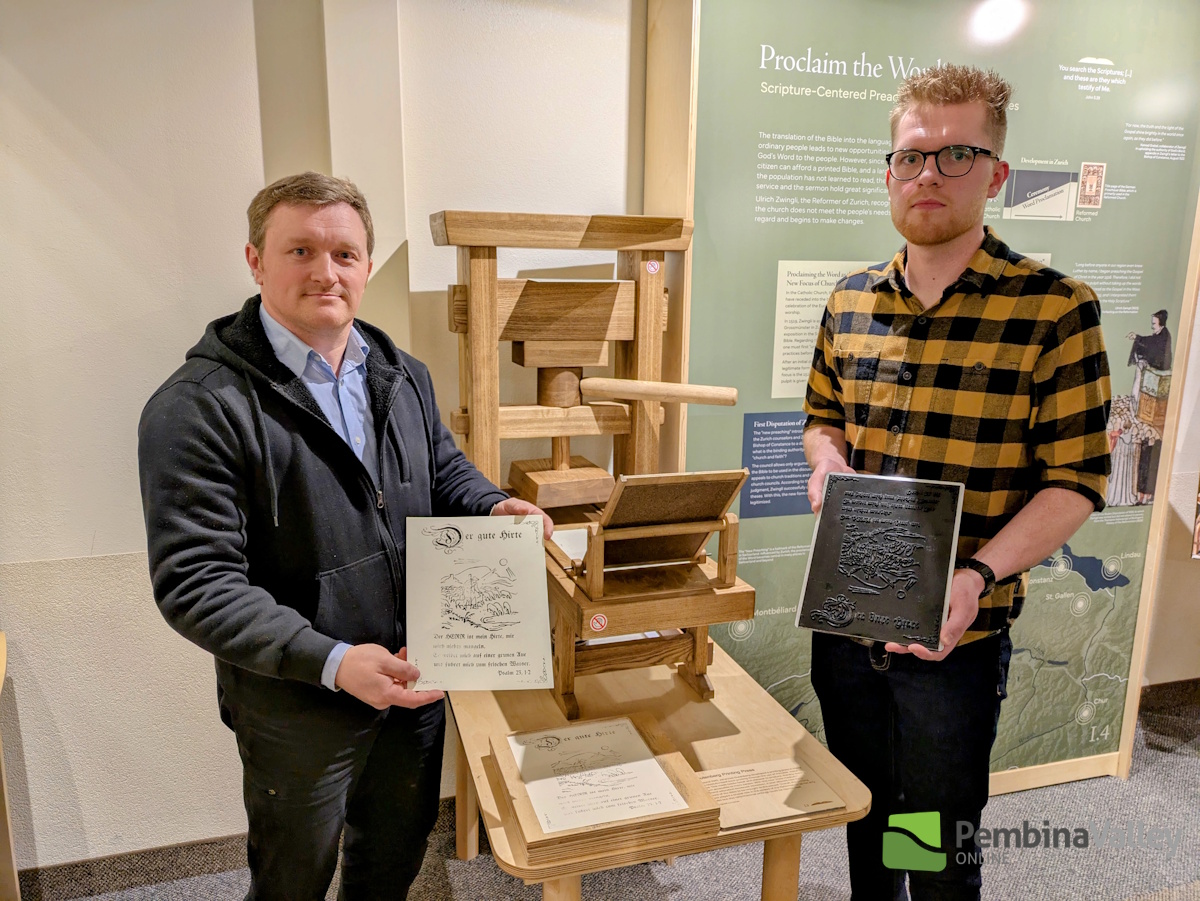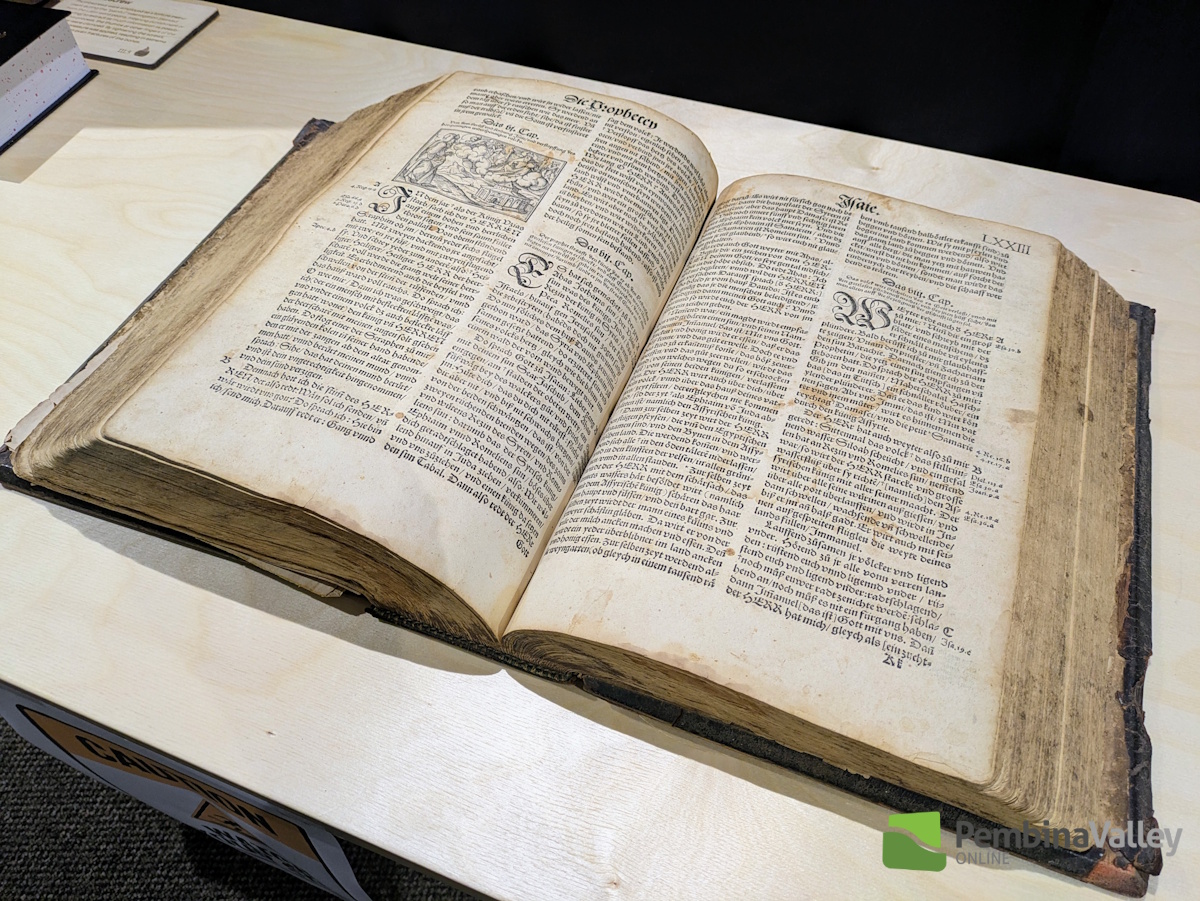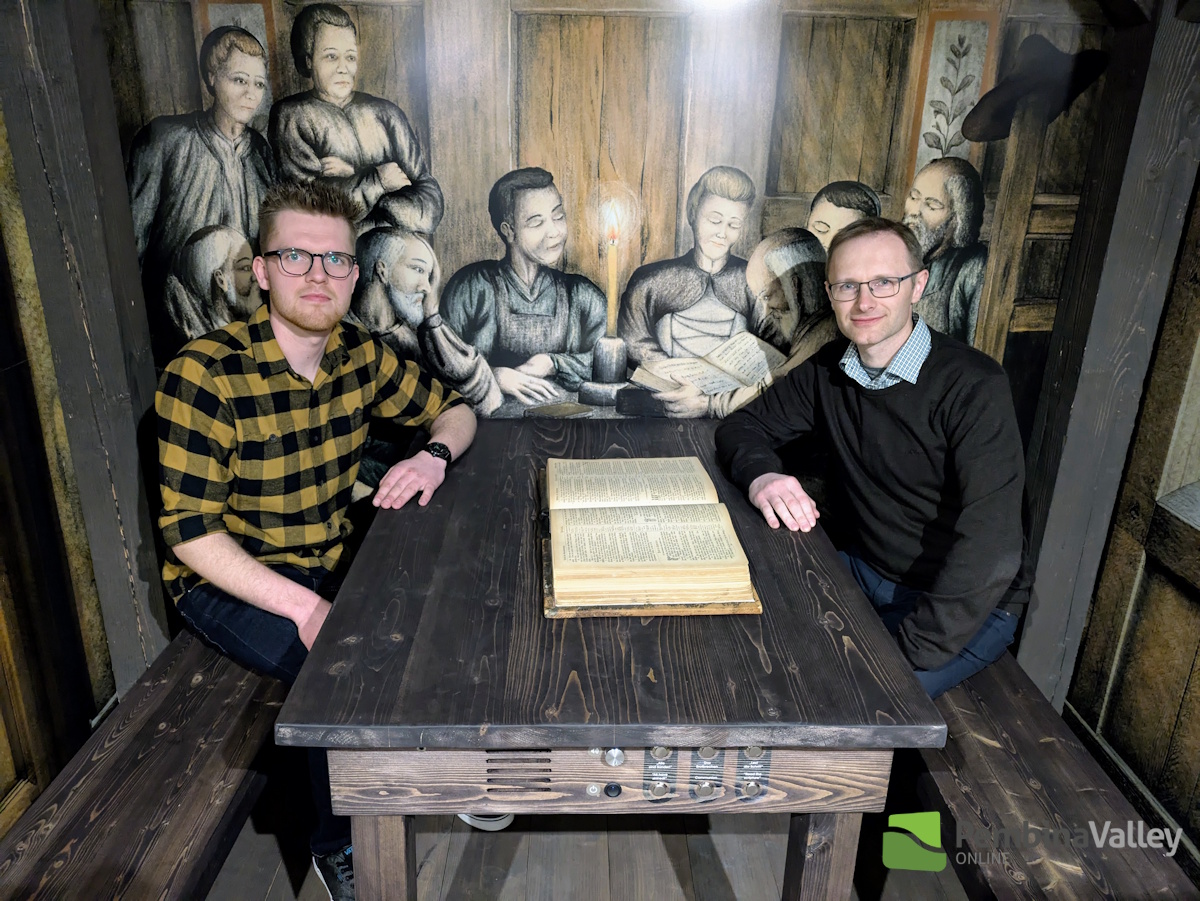Through Monday you have the opportunity to explore the beginning of the Anabaptist movement through an exhibit at the EEMB Church in Altona. Called "On Fire for Christ", the story boards, artifacts, multimedia displays and models take us from 500 years ago in Zurich to today.
"This exhibit actually displays a lot of the history of the Anabaptists, and actually was built in southern Manitoba," explained Jonathan Krause from EEMBC Altona who is one of the organizers and tour guides. "It's traveling around to multiple churches in this area. This exhibit shows the history of the Anabaptists, and the importance of many things that we still believe today."
The exhibit is divided into four distinct spaces:
1. Taught and corrected by the Scriptures
2. Pressed to baptism – gathered to the congregation
3. Discipleship as a witness against opposition
4. Jesus Christ – the everlasting standard?
"This whole exhibition was actually planned in Germany, and the research was done in Germany," shared Krause. "We have contact with the churches in that area, and they were willing to share those documents with us. We translated all the documents, and built up all the the posters and the artifacts as well. They're being presented in Canada, as well, so that's pretty awesome."

Translating the Bible from Greek and Latin was the beginning
"It started with reading the Bible, and the Bible was available at that time mainly in Latin," explained organizer Peter Harder from EMBC Reinfeld. "During that time people started to, like Luther and then also in Zurich Huldrych Zwingli and then some people with him, started translating the Bible from the original language, from Greek and Hebrew to German, and studying the Bible. That was the point where they understood what actually Christ meant with what does it mean to follow Christ? We have some exhibits, some blueprints of of the Bibles which were translated and printed at that time."
Importance of recognizing 500th anniversary
"When this anniversary came up, that was a really good opportunity to go back in history and actually look where do we come from? What did our forefathers believe? How did they arrive to their questions? What can we learn from that," said organizer Andreas Voth from GMBC Schanzenfeld. "Also, how was God working in that time from the pre-Reformation, and transformed the church, transformed Christianity, and called out a group of people that not only believe the Bible, but we're also willing to follow Christ's example and what the Bible teaches."
Voth believes the exhibit challenges viewers to to look back into the past, and possibly reevaluate.
"Maybe we got too superficial, and are so content with all the luxury we have now, and forget what Christ actually wanted us to do, like the fruit of the spirit, do we still have that kindness, or are we bitter against our neighbours," he reflected. "Do we seek to avenge ourselves? Those Christians, or our forefathers, rediscovered and practiced, and even through persecution, God gave them the grace to follow through. I think that's the same what God can do today, if you want to read the Bible, and not just go to church and practice religion, but actually follow Christ."
Hopes for those who visit
"We hope this exhibition inspires people, because lots of times in these days we are taking stuff for granted, as far as our church or our community," offered organizer Andrew Harder from EEMBC Altona. "We live a good life, and everything seems like that was before this way, but actually not in the past for the Faith and for the beliefs. People were persecuted and murdered, but they were firm with the faith that what God's commands was so important. What everyone should ask is how important is God's word to me in these days? How am I willing to commit to this Word of God. Our hope is people get encouraged, and get thinking what was in the past, and get inspired to change their life and change their vision about the Word of God, so it becomes important in their life too."
After closing in Altona on Monday, April 21st, "On Fire for Christ" will move to EMBC Reinfeld April 26th to May 7th (German language) and May 8th to 11th (English). That will be followed by GMBC Schanzenfeld with dates to be confirmed. You can find the full schedule here, and also book tours.
You can listen to the full conversation with Altona organizers Jonathan Krause, Peter Harder, Andrew Harder and Andreas Voth, below.

